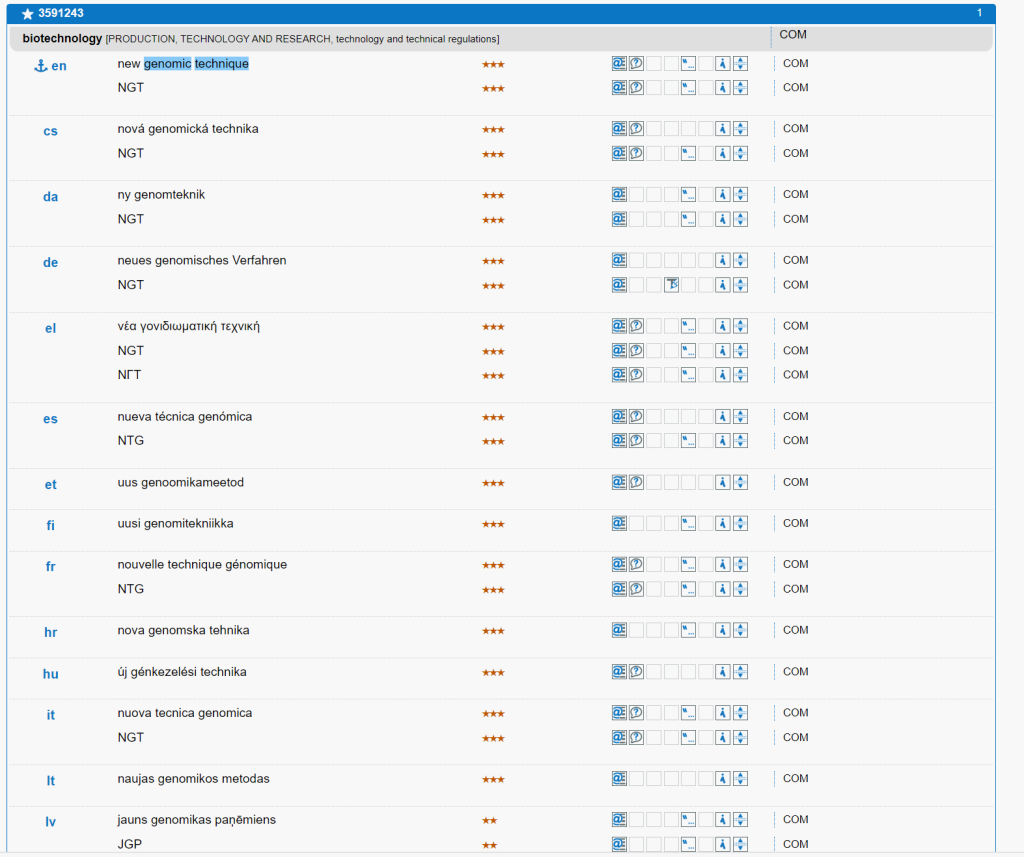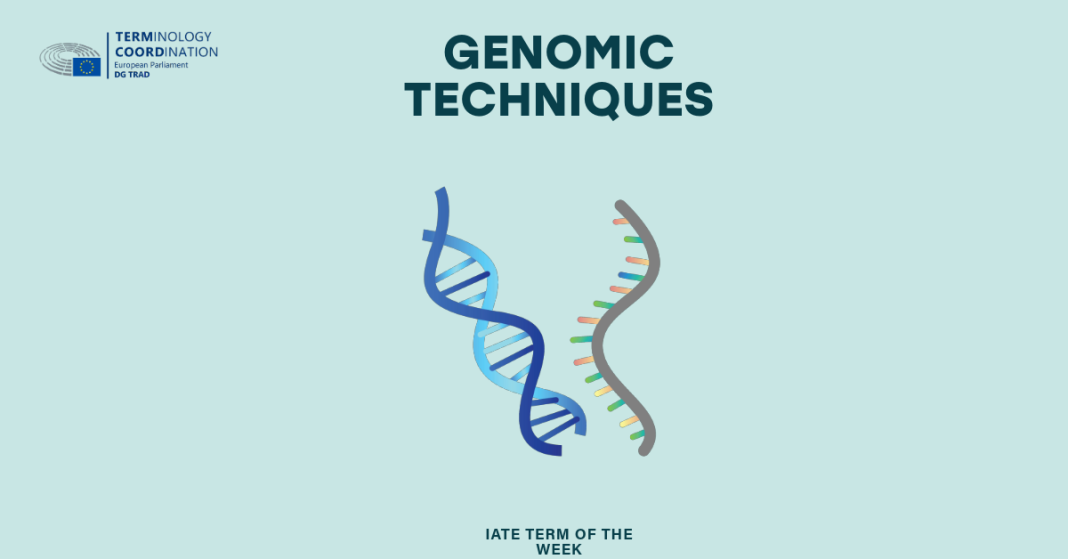Genomics techniques cover a range of tools designed to study, manipulate, and modify genetic material with unparalleled precision. Technologies such as CRISPR-Cas9, TALENs, and ZFNs have enabled scientists to precisely edit an organism’s genetic code, allowing for targeted modifications that can imbue crops with beneficial traits, like disease resistance or improved nutritional content.

The European Union has been at the forefront of discussions surrounding the regulation and implementation of cutting-edge genomic techniques in various sectors, particularly agriculture and food production.
EU Legislative Perspectives:
Within the European Union, the application of genomic techniques falls under the broader spectrum of the regulations concerning genetically modified organisms. Recent discussions and legislative efforts have revolved around defining and categorizing organisms altered through these new genomic methods. The aim is to differentiate between organisms developed via traditional genetic modification and those produced using newer, more precise genomic tools.
Challenges and Opportunities:
The incorporation of new genomic techniques into EU legislation poses multifaceted challenges and opportunities. One of the key challenges is establishing clear and comprehensive regulatory frameworks that strike a balance between fostering innovation and ensuring safety, ethical considerations, and environmental protection.
As the EU navigates the intricate landscape of genomic techniques, the focus remains on harmonizing scientific progress with robust regulatory mechanisms. The aim is to uphold stringent safety measures while capitalizing on the transformative potential that these technologies offer.
The integration of new genomics techniques into EU legislation outlines a critical juncture in science, policy, and ethical discourse. By fostering an environment that encourages innovation while upholding rigorous safety standards and ethical considerations, the European Union aims to leverage the immense potential of these technologies for the betterment of agriculture and food systems while safeguarding the interests of its citizens and the environment.
Bibliography
Eufic. (2023). New Genomic Techniques: what are they and how can they improve our food systems?. Retrieved from: Eufic – Food Production: https://www.eufic.org/en/food-production/article/new-genomic-techniques-what-are-they-and-how-can-they-improve-our-food-systems
European Commission. (2023). Frequently Asked Questions: Proposal on New Genomic Techniques. Retrieved from: European Commission – Press corner: https://ec.europa.eu/commission/presscorner/detail/en/qanda_23_3568
European Commission. (2023). REGULATION OF THE EUROPEAN PARLIAMENT AND OF THE COUNCIL on plants obtained by certain new genomic techniques and their food and feed, and amending Regulation (EU) 2017/625. Retrieved from: https://eur-lex.europa.eu/legal-content/EN/TXT/?uri=CELEX%3A52023PC0411&qid=1701708835661
Foreign Agricultural Service USDA. (2023). European Union: Corrected – European Commission Adopts New Regulation for Plants Obtained by Certain New Genomic Techniques. Retrieved from: Foreign Agricultural Service USDA – Data Analysis: https://fas.usda.gov/data/european-union-corrected-european-commission-adopts-new-regulation-plants-obtained-certain-new
Written by Marina Scelta
Born in Palermo (Italy), passionate about learning languages since a very young age, she studied Interpreting and Translation for English and French in her hometown, then moved to London for a Master’s Degree in the same domain (University of Westminster), eager to earn some first-hand experience in an international environment. In 2020, she decided to move back to Italy, where she applied for her second Master’s Degree in Foreign Languages for International Communication (Università degli Studi di Torino). In 2021, she had the opportunity to move to Strasbourg as an Erasmus student for almost one year, at the end of which she made of that city her new home. Currently in the process of writing her master’s thesis, in her free time Marina enjoys travelling, singing, walking in the nature, solving crosswords puzzles, and mostly looking around for vegan food.

